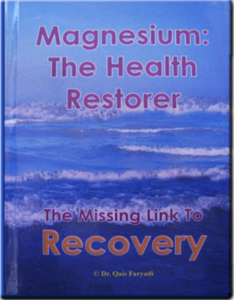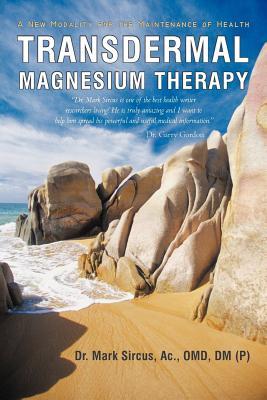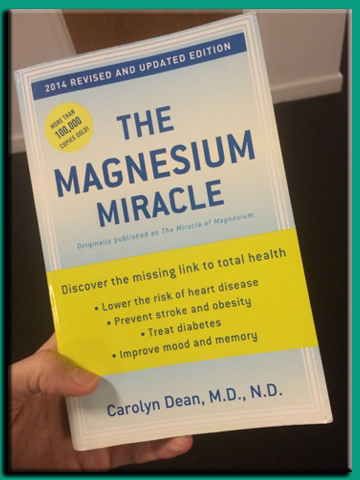Teaching and Health

In order to teach well, we must be healthy first. We must be healthy in our thinking, in our minds and in our brains.
Dr-Qais Faryadi
What is Magnesium?

Magnesium deficiency is one of the major factors in many severe illnesses such as heart attack, heart disease, asthma, anxiety, depression, fatigue, diabetes, migraine, and panic attack. Magnesium deficiency is a serious condition which affects various organs in the body. People with magnesium deficiency are always tired, irritable, nervous, have stiff muscles and difficulty in concentrating. In this splendid and courageous book (How Doctors Think), Dr. Jerome Groopman lifts the veil on possibly the most taboo topic in medicine: the pervasive nature of misdiagnosis. His engrossing narrative exposes all of the subtle mental traps—the snap judgments and stereotypical thinking, the premature conclusions and herd instinct—that dangerously narrow the vision of too many physicians.” Ron Chernow, author of Alexander Hamilton, Titan, and the House of Morgan:
“A cogent analysis of all the wrong ways his fellow practitioners are trained to approach the patients they treat.” ELLE Magazine: “When all you have is a hammer, everything begins to look like a nail. That is very much the case with doctors and drug treatment.” Dr. Dean Carolyn: “I wish I had read this book when I was in medical school, and I’m glad I’ve read it now… I have never read elsewhere this kind of discussion of the ambiguities besetting the super specialized the doctors on whom the rest of us depend:
“Specialization in medicine confers a false sense of certainty.” “Every reflective doctor will learn from this book-and every prospective patient will find thoughtful advice for communicating successfully in the medical setting and getting better care… This passionate honesty gives the book immediacy and an eloquence that will resonate with anyone interested in medicine, science or the cruel beauties of those human endeavors which engage mortal stakes.” Publishers Weekly, 2010

Benefits of Magnesium
Magnesium is one of the most neglected minerals in the human body. It is crucial for a healthy and productive life, and its deficiency dangerously affects every function of the body. As an intracellular ion, magnesium works as a co-factor in more than 300 enzymatic reactions (Manuel et al, 2009). Most of these enzymes are involved in energy metabolism (Schrader, 1999).
Magnesium, as a miracle mineral, stabilizes the cell membrane and is necessary for the metabolism of carbohydrates, amino acids, and fats. It also helps in digestion and absorption
Dr. Carolyn Dean states in her book, The Magnesium Miracle: “Magnesium is very important in health and medicine. It is extremely important for the metabolism of calcium, potassium, phosphorus, zinc, copper, iron, sodium, lead…….. Magnesium is a particularly crucial element for mediating the vital functions of the nervous and endocrine systems.
Evidence suggests that magnesium has an important function in many biochemical and physiological processes which directly affects human lung function, asthma management, joint pain, smoothening of muscle function, neuromuscular excitability, immune function, inflammation and oxidative stress (Kazaks, 2006). Dr. Dean adds: Magnesium helps maintain normal muscle and nerve functions, keeps heart rhythm steady, support a healthy immune system and keeps bones strong.”
The brain and heart require the highest concentration of magnesium while only one percent of magnesium is present in the bloodstream. Magnesium is required in human tissues to provide energy. Magnesium is also required for the production of deoxyribonucleic acid or DNA, and it is also present in the structure of chromosomes. In fact, magnesium is required in all enzyme reactions leading to the production and processing of DNA. Many researchers such as Dr. Carolyn Dean (2007), Dr.Steven Johnson and Mark Sircus, (2007) agree that magnesium deficiency is among the major factors responsible for many severe and life-threatening diseases.
Magnesium is the solution to many mysterious illnesses encountered in modern medicine if only doctors would acknowledge its vital function to the body. Magnesium is as crucial for human survival as water and air. In a study, Dr. Shealy (2009) asked participants with low cellular magnesium to soak their feet for about 20 minutes in magnesium chloride solution. This resulted in an improvement in cellular magnesium levels. Magnesium is safe, cheap and easy to use.


This almost forgotten but extremely crucial mineral plays an important role in assisting the human body to convert food into energy thus, helping the body to function properly (Raloff, 1997). Magnesium activates ATP (adenosine triphosphate) which is a vital energy storage molecule in the body. In short, without magnesium, there will be neither life nor movement. According to Dr. Carolyn Dean (2007), magnesium helps in the production and transportation of energy in our bodies. It also helps to transmit nerve signals and assists the muscles to relax. People with low levels of magnesium are quickly tired and need more oxygen and energy (Bliss, 2004). Magnesium is also needed in energy metabolism and helps in muscle contraction (Miller, 2005).